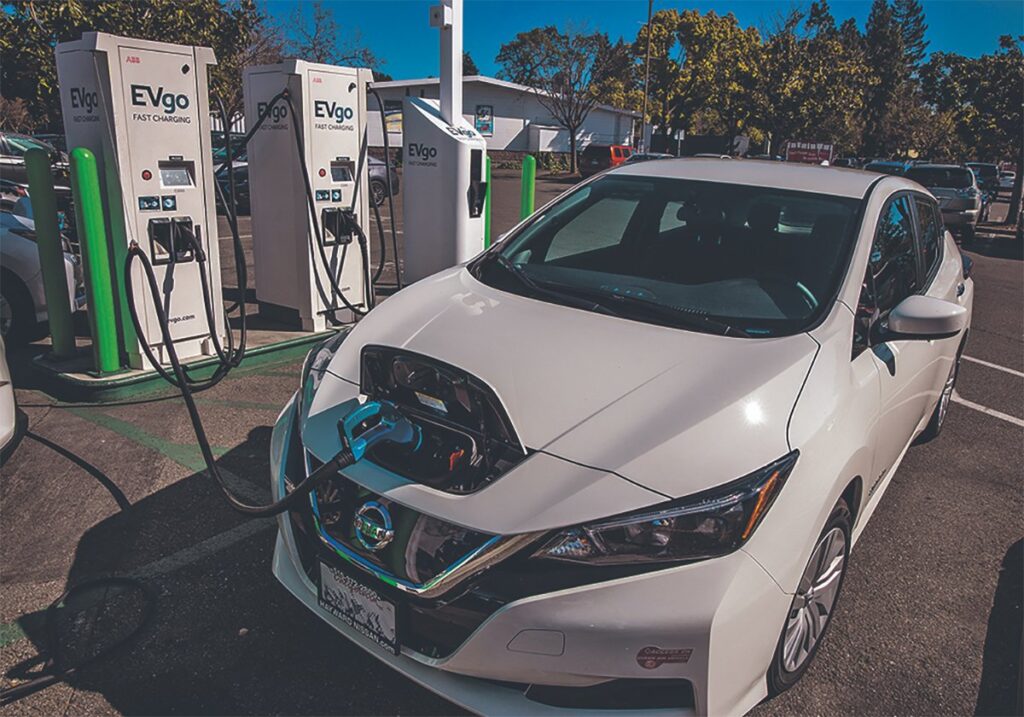Government support for electric vehicle sector threatens agriculture says federation

Glacier FarmMedia—The Canadian Federation of Independent Business is asking the federal government to re-assess its subsidies for electric vehicles and battery manufacturing in Canada.
In a letter to three federal ministers – Kody Blois (agriculture), Dominic LeBlanc (trade) and Francois-Phillipe Champagne (finance) — the CFIB pointed to the economic damages to Canada’s agriculture industry from the EV policies.
“Given the importance of agro-industries to Canada’s economy, we recommend government conduct a reassessment of its EV subsidies and tariff policies to mitigate unintended consequences for SME (small and medium enterprises),” the letter says.
Read Also


ICE Canada Weekly: Canola in a good position
Canola futures are expected to climb higher on the Intercontinental Exchange in the coming weeks, commented Phil Speiss, trader with RBC Dominion Securities in Winnipeg. How quickly that happens is dependent on whether demand rationing kicks in or not.
“While Canada’s tariffs on Chinese EVs are intended to support the development of the domestic EV industry, it is worth questioning whether continuing to subsidize multinational corporations is the right path forward.”
The CFIB represents about 100,000 small and medium sized businesses, including 5,200 in the agriculture sector. It highlighted the threat of Chinese tariffs in an April 23 news release, five days before the federal election.
In March, China announced 100 per cent tariffs on canola oil, meal and pea imports from Canada, and 25 per cent tariffs on pork and some seafood products.
The move was expected because the Chinese government was frustrated with Canada’s tariffs on Chinese-made electric vehicles, which were announced in 2024.
Farm groups criticize tariffs
Several farm groups have criticized the federal government for sacrificing the agriculture industry by protecting Canada’s electric vehicle and battery sectors from imports.
“We can’t keep being collateral damage in a trade war we didn’t start,” said the Wheat Growers Association in March.
“We need to end EV tariffs on China and force a solution to China’s unfair tariffs on canola. Canadian farmers and businesses deserve better.”
The CFIB is now adding its voice to the conversation, saying the federal and provincial subsidies for batteries and EV manufacturing are going to large corporations.
“In fact, over $62 billion has been pledged to several major automakers,” the CFIB letter says.
“However, some of these companies are now pausing their plans, raising questions about the need for such a policy, as well as the timing and long-term benefit of this subsidy strategy.”
Chinese tariffs hurting businesses bottom line
In April, the CFIB polled its members to gauge the impact of the Chinese tariffs and possible solutions to the trade chaos of 2025.
Around 35 per cent of agricultural businesses said the Chinese tariffs are hurting their bottom line.
Resolving the trade disputes and developing other markets for agri-food products is critical, but CFIB members are also worried about the challenges of doing business in Canada.
About 80 per cent of agri-businesses want the government to reduce regulatory costs and 79 per cent want the feds to cut taxes.
“The government needs to turn its focus to supporting the agriculture industry and adopting policies to improve the business climate for Canada’s SMEs,” said Jasmin Guénette, CFIB vice-president of national affairs.
Source: Farmtario.com


